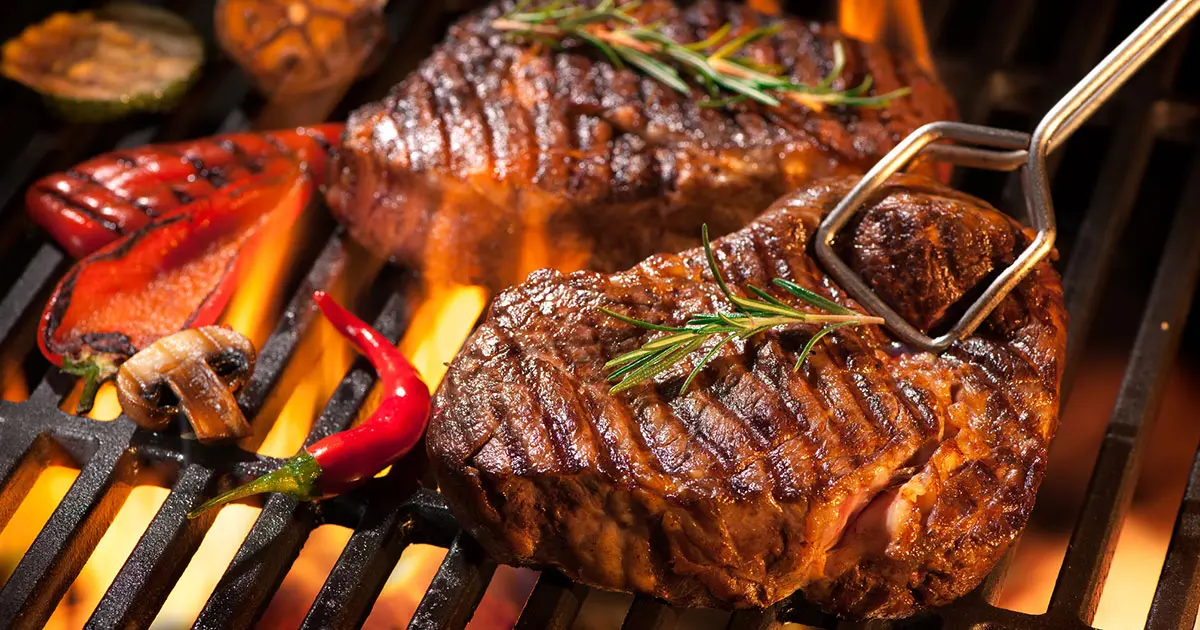Grilling is a popular activity during the summer months, with many Americans enjoying it at least once a month. However, there have been concerns about the health risks associated with grilling, particularly when it comes to charcoal smoked food. This article will explore whether charcoal smoked food is bad for you and provide tips on how to reduce the risks while still enjoying this summer favorite.
Is Charcoal Carcinogenic?
Charcoal itself is not considered a carcinogen, but cooking with charcoal can increase the risk of cancer. There are two main reasons for this. Firstly, cooking foods at high temperatures, as often done with charcoal grilling, can create carcinogenic compounds. Secondly, charcoal grilling produces a significant amount of smoke, which is also known to be carcinogenic. While not all types of charcoal grilling carry the same cancer risk, it is important to be aware of the potential dangers.
Does Grilling Cause Cancer?
Frequent grilling, especially of red and processed meats, has been linked to an increased risk of cancer. Red meat, such as beef, pork, and lamb, has been associated with an increased risk of colon and rectal cancer. Processed meats, like hot dogs and sausages, are classified as a Group 1 carcinogen by the World Health Organization, meaning they are known to cause cancer. Additionally, grilling meat at high temperatures can create carcinogens such as heterocyclic amines (HCAs) and polycyclic aromatic hydrocarbons (PAHs), which are known to be carcinogenic.

Is Grilling with Gas Safer than Charcoal?
Grilling with gas is generally considered safer than grilling with charcoal. Gas grilling produces less smoke and does not reach the same high temperatures as charcoal grilling, reducing the formation of carcinogens. However, it is important to note that gas grilling still carries some risks, although they are lower compared to charcoal grilling.
How to Reduce Carcinogens When Barbecuing
While grilling can pose health risks, there are ways to reduce the formation of carcinogens and make your barbecue safer. Here are some tips:
- Cut back on grilling red meat and processed meat: Red and processed meats are associated with a higher risk of cancer. Opt for leaner meats like chicken, turkey, and fish, which have a lower risk. Additionally, grilling vegetables is a safe and healthy alternative.
- Grill at lower temperatures and avoid charring: High temperatures and charring can increase the formation of carcinogens. Use a lower flame and avoid overcooking your meat. If any parts of the meat char, it's best to discard them.
- Reduce cooking times: Baking or microwaving meat before grilling can reduce the time it spends on the grill, thus reducing the formation of carcinogens. Flip your meat often to prevent overcooking or charring.
- Marinate meat before grilling: Marinating meat for at least 30 minutes before grilling can lower the formation of HCAs. Use simple marinades with vinegar, oil, wine, or lemon juice, and herbs and spices.
- Cut off visible fat: Fat dripping onto coals can create smoke and increase the risk of PAH formation. Trim off any visible fat before grilling.
- Choose a safer grill: Gas grills produce less smoke and lower temperatures compared to charcoal grills, making them a safer option. If using charcoal, select barbecue briquettes with a lower burning temperature.
By following these tips, you can enjoy a delicious barbecue while reducing the risks associated with charcoal smoked food. Remember to prioritize lean meats, vegetables, and safe grilling practices to minimize the formation of carcinogens.
Grilling with charcoal, and grilling in general, has been associated with an increased risk of cancer due to the formation of carcinogens. However, by making healthier food choices, grilling at lower temperatures, and following safe grilling practices, you can reduce these risks and still enjoy the flavors of a barbecue. Remember to prioritize lean meats, vegetables, and marinating your meat before grilling. Stay informed and make smart choices to ensure a safe and enjoyable grilling experience.
Grilling is a beloved pastime, with many people enjoying the traditional flame-broiled fare of a backyard barbecue. However, it's important to be aware of the potential health risks associated with grilled food. Coal smoke, in particular, has been a subject of concern when it comes to food safety.
Are Grilled Foods Safe to Eat?
Grilled foods, especially red meat and processed meats, have been linked to an increased risk of colorectal and other cancers. The cooking method itself exposes the meat to carcinogens, which are substances known to cause cancer. When fat from the meat drips onto the coals, it can create flames and smoke, causing carcinogens to splash back onto the food. However, this doesn't mean you have to avoid grilling altogether. The key is to be mindful of how often you eat grilled food and the types of foods you choose.
What is the Safest Charcoal to Use?
When it comes to choosing charcoal for grilling, it is important to select a safer option. Some charcoal briquettes have a lower burning temperature, which can help reduce the risk of carcinogen formation. It is recommended to look for barbecue briquettes with this feature to minimize the potential health risks associated with coal smoke.
In conclusion, while coal smoke in food can pose health risks, it is possible to enjoy grilled food safely. By being aware of the risks, making healthier food choices, and selecting safer charcoal options, you can reduce the potential harm of coal smoke in your favorite barbecue dishes. Remember to prioritize lean meats, vegetables, and safe grilling practices to minimize the formation of carcinogens.
If you want to know other articles similar to Is charcoal smoked food harmful? tips to reduce risks you can visit the Grilling risks category.

